Dozent, Forscher, Facharzt für Ayurveda-Medizin
Dr. Pathirage Kamal Perera (PhD) ist Dozent für Ayurveda am Institut für indigene Medizin, Universität Colombo, dessen Abteilung für Dravyaguna er geleitet hat, sowie Facharzt im National Ayurveda Teaching Hospital, Sri Lanka. Er war der Koordinator für das erste MD(Ayu) Postgraduiertenprogramm in Sri Lanka und Koordinator für Ayurveda Postgraduiertenstudien am Institut für Indigene Medizin der Universität von Colombo. Er ist bekannt als Ayurveda-Berater und Forscher in Sandhi-Roga (Arthritis) und Ojo-Roga (Immunstörungen) und arbeitete als Berater in einem WHO-Programm für traditionelle Medizin in Sri Lanka.
Ayurveda and Sri Lankan traditional medicine approaches in joint disorders (Sandhigata Roga) and clinical trials
Dr. Pathirage Kamal Perera
Introduction
Ayurveda and traditional Sri Lankan medicine (TSM) (Locally: Desheeya Chikitsa) has been practiced in Sri Lanka for more than 3,000 years. The most important among them is traditional Sri Lankan medicine (TSM). These indigenous medical systems form part of the national health services provided by the government of Sri Lanka about 60 to 70% of the rural population relies on traditional and natural medicine and related health products for their primary health care in Sri Lanka. And these medical systems are also contributed to Sri Lankan current health status. Therefore Ayurveda and TSM are an essential and integrated component of primary health care system in Sri Lanka.These medical systems are heavily depending on plant and mineral based medicinal products. Many of these medicines have been investigated for their biological activities by scientists in the universities and research institutes. Currently clinical research on traditional medicines in Sri Lanka should be subjected to the same ethical requirements related to human subjects in conventional medicine. Ethics review committee of Institute of Indigenous Medicine in University of Colombo is the main responsive body for ethical review on traditional medicine based research in Sri Lanka. Ethical requirements are universal and comprehensive but most of time adapted to the particular social context in which the research is implemented. Ayurveda and TSM is not merely a matter of diagnosis or treatment. It outcome assessments are broad and empirical viz Deergayu (longevity), Sukayu (Quality of life), Hithayu (Peaceful co- existence with society and Nature). Therefore current ethical review formats social value, scientific validity, and favorable risk–benefit ratio raise specific challenges in international traditional medicine research that have not been adequately discussed in conventional research methodologies. Conventional concepts of clinical research design may be difficult to apply when using clinical research to evaluate various systems and practices of traditional medicine, depending on the goal of the assessment. In such circumstances, the choice of study design should be discussed on a case-by case basis or sometimes case series. The study design may be chosen from a whole spectrum of clinical research designs which are suitable for assessing traditional medicine including black-box design, ethnographic design, and observational design. Most of time double assessing methods are implemented in clinical trial designing. Therefore Ayurveda and TSM have been researched in ethical based in current drug development process in Sri Lanka. This presentation discusses two main stream arthritis types Sandigata-vata(Osteo arthritis) and Ama-vata(Rheumatoid arthritis with our clinical experiences.
Osteoarthritis (OA) is a degenerative disease affecting joints, which, significantly restricts the functions of joints. Sandigatavata (OA) of Traditional Sri Lankan Medicine (TSM) is considered to be the close equivalent to OA of modern medical science. In SandhigataVata, joint inflammation initially causes pain (Sandhishula) and later swelling (Sandhishotha). Mainly due to pain and swelling, the mobility of joints is restricted (Stabdha) at the initial stage, and later it is aggravated by the anatomical changes that occur in the articular surfaces and the joint capsule and the ligaments. When and if patient try to move the joint, which may result in excruciating pain (Prasarana Akunchanayoho Vedana).In old age, there is a progressive decaying in the body structures resulting in various degenerative disorders including OA due to the predominance of one of main body humor vizVata. The main outcome of the treatment is to decrease pain while attempting to maintain or increase the range of knee motion and to minimize disabilities in daily living activities. The conventional pharmacological management of OA includes the administration of analgesics and non-steroidal anti-inflammatory drugs (NSAIDs) and local and systemic steroids, but their use neither provides adequate pain neither relief nor deceleration in disease process. Most of the time, the traditional medicine and Ayurveda have used individualized pharmacogenomical assessment (Prakruti) approach to the patient.
Amavata (Rhematoid arthritis) is a chronic, degenerative disease of the connective tissue mainly involving the joints. Swelling and pain in multiple joints are the main features of Amavata.Excessive use of incompatible food articles (ApathyaAhara) and wrong lifestyle patterns (ApathyaViharana) results in the formation of Ama which gets circulated throughout the body by VyanaVayu. This then accumulates at Shlesmasthana, and especially at the Shleshakakaphain the joints leading to the manifestation of symptoms of the disease. Again Ama circulated all over the body and accumulates and blockage of vital organs (SrotoDushti). Body pain, loss of appetite, fever, weakness, excessive thirst and heaviness are also manifested. Involvement of joints restricts the normal body movements which may lead to contracture of muscle and permanent deformities. Blood investigations show a high erythrocyte sedimentation rate (ESR) and positive Rheumatoid arthritis (RA) factor, positive Anti CCP and inflammatory cytokines. Prognosis of Amavata is poor especially in those cases where Tridosas are involved. The principles of treatment of Amavata are Langhana and Swedana; and drugs having Tikta, Katu Rasa, Deepana, Virechana, Snehapana and Basti properties.
Methodology
Case series
In order to capture that concepts into the picture, targeted individualized pattern based black box method of treatments for management of Janu Sandhigata Vata (knee osteoarthritis) in this reported cases.Reported cases (n=10) were at age range of 45years to70 years and both female (n=8) and male (n=2), patients diagnosed as OA of the knee joints were included in this study. When assessing the treatment history of these patients were on NSAIDs and/or conservative therapies and/or steroidal injections to knee joint/s. Their quality of life (QOL) and activity of daily life (ADL) decreased with age. Radiology (X‑ray) report confirmed that they were in Kellgren Lawrence grade III or less. At the beginning, visual analogue scale for pain and the Knee Society clinical Rating System (KSS) score of pain, movement, stability and function score were measured. In this case series similar treatment plan was used for mange OA in knee. Traditional and Ayurveda medicine treatments were given as regimens up to 86 days end point. At the 86 days end point, external treatment of oleation and 2 capsules of Shallaki (Boswellia serrate) and two tablets comprised of Emblicaofficinalis, Tinosporacordifolia, and Terminaliachebula), twice daily were continued over 8weeks. Visual analogue scale for pain, knee scores in the KSS rating and Ayurveda clinical assessment criteria were used to evaluate the effects of treatments at 86 days endpoint. All the patients consent were obtained for publishing the data and study was conducted under normal clinical routings using patients’ clinical records as a tool.
Clinical trial
A phase II/III study of the anti-inflammatory activity of Rasna Sapthakaya decoction in patients with Ama Vata (rheumatoid arthritis) was carried out in National Ayurveda Teaching Hospital in Sri Lanka. Trial objective was to assess the anti-inflammatory effect of Rasna Sapthakaya decoction (RS) in chronic arthritis patients (Universal Trail Number – U1111-1175-4724, Clinical trial registry number SLCTR/2015/028). Study was designed as interventional randomized control trial. 60 patients with rheumatoid arthritis attending the clinic at the Ayurvedha Teaching Hospital, Borella recruited by advertisement displayed in the notice boards of the Hospital. Participants meeting inclusion/exclusion criteria were randomized into two arms. The patients in the intervention arm were given 14 packets of ingredients of RS decoction. They will be instructed on the method of preparation of the decoction by the principal investigator and the method of preparation also will be provided in writing in their preferred languages. The patients will be advised to take ½ cup which was approximately 120 ml, in the morning and at night, daily for 14 days. The patients on the control arm received the standard Ayurveda anti-inflammatory drug (Rumalaya tablet /500mg/ twice daily for 14 days) at a standard therapeutic dose. As primary outcomes following parameters were assed viz Full blood count, ESR, Rheumatoid factor (RF), Serum anti cyclic citrulinated peptide (Anti-CCP) antibody, Serum cyclo-oxygenase 2 (COX 2), presence of fever, odema (measured at predetermined location using a standard measuring tape) and Joint mobility (using a goniometer). Primary outcomes were assessed at baseline, day 15 and day 56 (end of two months).As secondary outcomes assed by selected side effects as recorded in a patient diary, including headache, nausea, vomiting, diarrhoea and allergic reactions (itching, sneezing).
Results
Case series
Reductions of visual analogue scale for pain was observed between baseline and the 86 days endpoint. Clinical assessment criteria and the KSS scores of pain, movement and stability were also improved up to good level and function score were improved up to excellent level. During the follow up period, joint symptoms and signs and the knee scores were remaining unchanged.
Clinical trial
According to the findings of haematological tests, it was observed that the treatment with the RS decoction exerted a significant (p<0.001) reduction of ESR from the base line value and significant increases of Hb, PCV and RBC count were noted in the test group. However there were no significant changes noted in other parameters tested.
Conclusions
Study explored that substantial decrease in clinical parameters of OA and improved patients’ quality of life by the intervention of the TSM.
Newsletter
* Ich habe die Datenschutzerklärung zur Kenntnis genommen. Ich stimme zu, dass meine Angaben und Daten zur Beantwortung meiner Anfrage elektronisch erhoben und gespeichert werden.

2024 © Rosenberg Ayurveda Akademie gGmbH